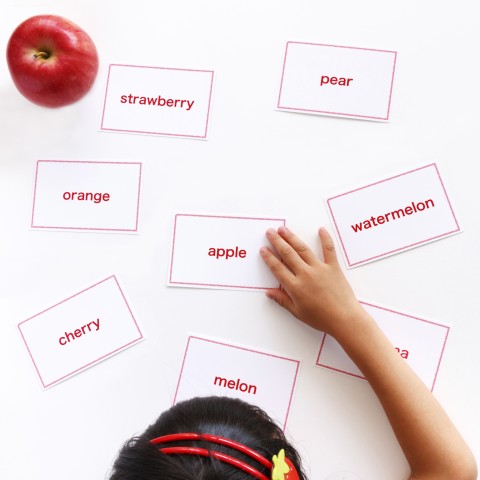
The professor walks into the lecture hall.
“Okay, class. Umm, clear your desks. It is time for your pop quiz. So basically, it’s not as hard as the last test. Well… It could be depending on how hard you studied. Now let’s get started. We, like, don’t have all day.”
If you were a student in that lecture hall, could you take the professor seriously? The professor used almost every English filler word on the planet.
How often do you listen to your speech? Whether in professional or casual settings, do you pay attention to your spoken words? Or the ones you’re hearing?
Chances are that you routinely use filler words too. We all do.
You may naturally be aware of filler words in daily conversations, especially if you are the epitome of a skilled public speaker. Educational organizations, such as Toastmasters International or TED Talks, discourage filler words because when they are used excessively, they can distract from the main message and reduce credibility.

In today’s article, we will review the top 10 most common filler words in the English language.
 Table of Contents
Table of Contents
- What are Filler Words and Why Do We Use Them?
- Filler Word #1: “Like”
- Filler Word #2: “I mean…”
- Filler Word #3: “So basically…”
- Filler Word #4: “You know…”
- Filler Word #5: “…Umm/Uh/Er…”
- Filler Word #6: “Well…”
- Filler Word #7: “…Okay/So…”
- Filler Word #8: “Now…”
- Filler Word #9: “Or something (like that)…”
- Filler Word #10: “…I guess…”
- Pros and Cons of Filler Words
- How to Eliminate Filler Words
- Conclusion
1. What are Filler Words and Why Do We Use Them?
Filler words are commonly known as words used in speech to express hesitation or the need for more time to think.
There are a number of other uses as well. The following are also functions of filler words:
- Speak indirectly to avoid conflict
- Approach sensitive topics, such as politics
- Emphasize opinions and ideas
- Hint at emotions or behaviors
- Express uncertainty
If you are a non-native English speaker, it is especially helpful to learn filler words. By learning filler words, you will be able to identify them by listening. You will also know when and when not to use filler words yourself.
If you use the right filler word at an appropriate time, you will sound more like a native speaker. This especially helps as you are becoming familiar with English. Once you learn more vocabulary and advance in English, you will be able to lessen the amount of filler words you speak.
As you will notice, different English filler words are used for different purposes; they each have their own unique meaning and usage.
2. Filler Word #1: “Like”
| Meaning | When to Use | Example |
| may or may not be true | when you’re not exactly sure or have a hard time describing something | “What was his name again?” “It was, like, Justin or something.” |
| extra emphasis when comparingor describing things | when you want to exaggerate a comparison or description | “COVID-19 is like something I never imagined.” |
| “Like” is an overused filler word in English, used in both formal and informal settings. It is commonly spoken by Generation Y, also known as millennials, and Generation Z. | ||
3. Filler Word #2: “I mean…”
| Meaning | When to Use | Example |
| to express emphasis to a statement | to strengthen your opinion or statement | “ I failed the biology exam today.” “I mean, you can always study harder for the next test.” |
| to make a correction (sometimes to lie) | to correct oneself or lie | “Where is he?””He went to the store. I mean, he went to school.” |
| “I mean” is generally said to emphasize how one feels about something. When it is used to express honesty, it can sometimes be quite brutal. Take this statement for an example. I mean, I never liked your cooking in the first place. It is mostly used while making corrections. However, it can sometimes be used to change the truth into a lie or vice versa. Therefore, the listener may not take the speaker seriously. | ||
4. Filler Word #3: “So basically…”
| Meaning | When to Use | Example |
| to give an accurate account of a situation or statement | to give a more detailed explanation (generally used in the beginning of a sentence) | “So basically… The man was kicked out of the aircraft for refusing to wear a mask.” |
| to give further instructions | to give instructions that are easier to understand | “I can’t afford to give each of my 30 students a family pack of candy.” “So basically… All you have to do is buy one family size bag of candy and distribute it evenly among the students.” |
| “So basically” is mostly used when telling stories or giving instructions. Therefore, when you hear someone begin a sentence with “So basically,” expect to get lots of details. | ||

5. Filler Word #4: “You know…”
| Meaning | When to Use | Example |
| to refer to something already known | asking for confirmation | “This book is a New York Times bestseller, you know?” |
| to prove something to someone | to help someone understand what you mean | “You know, last night’s party was really lame and tiring.” |
| “You know” is said when the speaker assumes that the listener already knows something. It is also used to further explain how you feel or what you mean. | ||
6. Filler Word #5: “…Umm/Uh/Er…”
| Meaning | When to Use | Example |
| expressing hesitation | when you don’t want to respond | “Do these pants make me look fat?” “Uh…” |
| added pause in speech | when you need more time to think about what you’re going to say | *giving presentation at meeting* “Today, we are going to review last week’s…Umm…sales.” |
| “Umm,” “uh,” and “er” are used to fill awkward silence. It is spoken when either the listener doesn’t want to cause conflict with someone or needs more time to think. | ||
7. Filler Word #6: “Well…”
| Meaning | When to Use | Example |
| to think about your next words | to get more time to think or stall | “Well… Alright, I will extend the deadline by another week.” |
| to mark the end of a conversation | to end a conversation | “Well, it was nice talking to you! Bye!” |
| “Well” can be used when you want to make a quick decision but need to think about it first. It can also be a polite way to end a conversation. | ||

8. Filler Word #7: “…Okay/So…”
| Meaning | When to Use | Example |
| marks the start of a conversation or idea | to start a new topic | “So why did the two singers argue at the Oscars?” |
| to give instructions | when you want to give details or instructions | “Okay, so let’s turn to page 78. Who wants to read the first paragraph? Okay, Jonathan?” |
| to give a summary | when you prepare to summarize an event | “So, yesterday, I went to Starbucks to study Korean, and the barista asked everyone to wear their masks.” |
| When someone is preparing to start a new topic, give instructions, or provide a summary, he or she starts a sentence with “So” or “Okay, so…” | ||
9. Filler Word #8: “Now…”
| Meaning | When to Use | Example |
| to give instructions or introduce an idea | when you want to start a conversation | “Now… What is the main idea of the story?” |
| to express confusion | when you’re in wonder | “Now how did my laptop end up on the bathroom floor?” |
| to give honesty on changes needed to something or someone | when you need to be honest about a situation | “Now you have to stop smoking. It is bad for your health.” |
| “Now,” as a filler word, is used at the beginning of a sentence. Like most filler words in English, it is used to lighten a statement to not cause offense. It is also a marker to the start of a conversation. Lastly, when something seems bizarre or confusing, the speaker may begin their statement with “Now.” | ||

10. Filler Word #9: “Or something (like that)…”
| Meaning | When to Use | Example |
| to give similarities | to provide examples | “If you want to watch a sad romance, you should watch The Notebook or something like that.” |
| to give a guess | when you’re not entirely sure what something is | “Her job is IT-related and consists of coding or something like that.” |
| This filler phrase is usually used to keep a conversation active and interesting. “Or something (like that)” leaves the listener with many options of comparisons or guesses to what the speaker is referencing. Once the listener has a clear understanding, given the examples provided by the speaker, he or she is left with many options and choices. | ||
11. Filler Word #10: “…I guess…”
| Meaning | When to Use | Example |
| affirmation but without certainty | when you’re not entirely sure about something | “I guess he overslept, because he is an hour late for work today.” |
| to express no harm done or will be done | used as reassurance that everything will be fine | “I guess it’s okay for you to use my car this weekend.” |
| “I guess” is used to make light of situations, in case it’s not true or harmful. | ||
12. Pros and Cons of Filler Words
You now learned the top 10 most common English filler words, their meaning, and their usage.
As you can see, filler words are not terrible. However, they are highly discouraged.
Here are the reasons why.
Pros
You appear gentle during talks of sensitive topics, such as politics and controversial issues.
Usage of some filler words like “I mean” and “okay/so” may lighten the mood during tense conversations. It’s understood that by using filler words, the speaker intends to speak with added politeness and respect and to minimize any perceived aggression.
Take this conversation as an example.
Speaker 1: Did you see the first 2020 U.S. Presidential Debate? The moderator did such a poor job.
Speaker 2: I mean, he did the best he could. I doubt any other moderator could have calmed down the president.
Other than politics, conversations about other people or special events can be taken lightly, such as some of the sample sentences above.
People are more likely to understand what you say, whether you answer directly or not.
Usually, when people are direct, the listener may not understand where they are coming from. By using filler words like “or something like that” and “you know,” the listener is prepared to hear further details and comparisons.
Here’s a conversation as an example.
Speaker 1: It saddened me that Chadwick Boseman passed away.
Speaker 2: Who?
Speaker 1: He played Black Panther. You know, Black Panther is one of the Avengers from Marvel.
Speaker 2: Oh no! Black Panther passed away?! I’m so sad!
Filler words mark the start of further explanations, which are always helpful in conversations.
It makes you seem fluent in a language, because it is naturally used by native speakers in daily conversations.
Depending on your level in English, you could easily trick people into thinking you’re a native English speaker. Once you master the meanings and usage of English filler words, it will become second nature. You will begin using filler words like a pro!

Your first step can be to learn the filler words from the list above!
Cons
You will be seen as unreliable and dishonest.
Usage of filler words is not always natural. As the speaker, you want to display your true self and personality. When you use filler words, especially excessively, you appear unreal to your audience.

Filler words have the disadvantage of making you seem distracted and dishonest. If someone wants an answer to a question or your opinion on a certain issue, it will be disappointing to hear you hesitate and fill your response with filler words.
It is especially upsetting during a speech. If you want the audience to understand your point of view, using filler words will not deliver your message clearly. It will cause the audience to lose interest and decrease your credibility.
It is unprofessional and puts you at the bottom of the hiring pool.
Employers often seek ideal employees with honesty and great speaking skills. By confidently speaking with little to no filler words, you impress the employer with your excellent communication skills. On the other hand, if you constantly hesitate or speak filler words during a job interview, employers will sense a lack of responsibility.
If you have an upcoming job interview, do yourself a favor and practice answering frequently asked questions beforehand.
Your speech will bore your listener(s).

Your goal as the speaker is to convey a message to your listener. Imagine the listener eager to hear what you have to say, but you use 1-2 filler words like “Umm” and “like” per sentence. It will create disappointment for the listener, because in addition to the heavy usage of filler words, you wasted his or her time by not having fluid speech.
13. How to Eliminate Filler Words
Like all bad habits, eliminating or reducing the number of filler words from your speech will not be easy. However, by following these three tips, you will become a better speaker and increase your charisma.
Awareness
Become aware of the filler words you use most often and how you tend to use them. Take a mental note of how often you speak them and which filler words you use the most. As you continue to have conversations, you will become more conscious of your speech and know to eliminate your filler words.

For the moment, replace your filler words with pauses. Learn to be okay with pauses, but avoid holding long pauses of five seconds or more. If you sense a long pause in a casual conversation, prepare an honest excuse, such as “I apologize. I forgot what I was going to say.” On the contrary, if it is during a presentation, move onto the next part of the speech that you remember. The listeners will understand.
In order to prevent the pauses, consider the next two tips.
Role Play
Whether you have a presentation or job interview in the near future, role play in the mirror or with a trustworthy source (e.g. a mentor or close friend). Practice your speech or presentation as much as necessary, which will enable you to speak flowingly on the big day.
You can also go the extra mile and prepare answers for questions that you will likely be asked. That is one reason to have an audience during your practice rounds.
Increase Vocabulary
What is the word I am looking for? It’s on the tip of my tongue.
How often do you share that thought when speaking? It is possible that you actually lack vocabulary.
One surefire way to increase your vocabulary is by downloading apps that involve studying with spaced-repetition system (SRS) flashcards. SRS is a method in which you see a vocabulary word repeatedly during different intervals. It allows you to remember words and burn them into your brain.
For example, you learn the word simultaneously. At first you will see the word again in a few minutes. Later, if simultaneously appears before you again and you remember the definition, you will see the flashcard again in a few days, weeks, or months.

On EnglishClass101, you will find numerous vocabulary lists with different themes. Best of all, you can add these words to flashcard decks on our site to study with SRS.
Also, subscribe to Learn English with EnglishClass101.com on Youtube. Its Youtube channel includes ways to start conversations in English with phrases and vocabulary. Take the video “Learn Over 100 English Words for Daily Conversation!,” for instance. It features 100 English words for daily conversations, and a number of them are advanced, including the word “esoteric.” As you will learn from the video, esoteric means “something that requires specialized knowledge.”
As your vocabulary improves, you will cleverly replace filler words with them.
14. Conclusion
Believe it or not.
Learning new languages will cause you to become more aware of how you speak. When learning a new language, you learn important factors, such as vocabulary, pronunciation, and grammar.
That is where Innovative Language comes in!
By subscribing to Premium PLUS on EnglishClass101 or any of our 34 language courses, you will have access to your own personal teacher and assignments. From thousands of audio lessons to our Core Word Lists, you will learn a new language in an enjoyable way!
Start speaking a new language almost immediately by shadowing with our line-by-line audio. Take advantage of our free resources as well!
From learning about filler words to understanding blog entries, you have everything you need to learn about your target language at your fingertips!
Happy learning with EnglishClass101!
Were any of the filler words unfamiliar to you? What are some equivalent filler words in your native language? Let us know in the comments!










